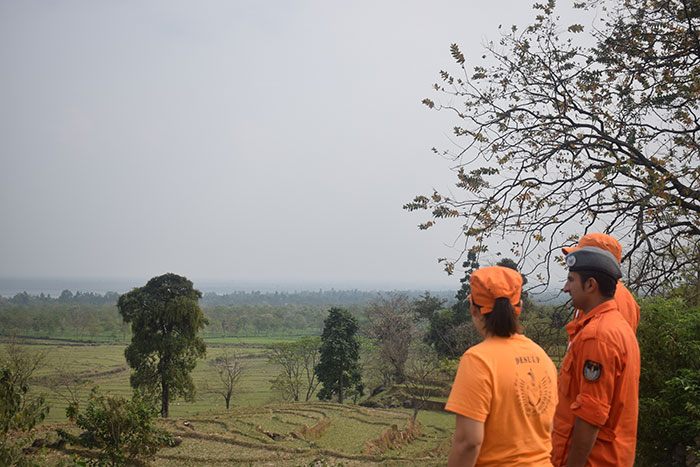Rajesh Rai | Samtse
Samtse dzongkhag monitoring of people’s movements along the border stretches in the battle against Covid-19 is becoming a herculean task given countless informal and illegal points of entries.
There are 44 points of entries, including the main checkpoints, which are manned but there are many other informal border areas from where movement of people could go unnoticed.
Samtse residents say that in many of the informal points, it is even difficult to identify which side is Bhutan and India, making it difficult to control the movement of people.
However, desuups, police, gewog officials, civil servants, and local volunteers are monitoring the areas day and night.
At Norbugang, cow herders from across the border sneak into Bhutan to graze their cattle and many come to smuggle alcohol.
A desuup, Dorji Wangchuk, who is a teacher, said people try to sneak in with their cattle.
“We ask them to return after giving awareness and sensitivity about Covid-19,” he said, adding that such cases have decreased now.
Although there are rumours about alcohol being smuggled from Bhutan, no one has been caught red-handed.
Norbugang gup Kuenga said local volunteers that include gewog administration officials, civil servants, and villagers patrol the borders from 5pm to 9pm before being taken over by desuups.
Desuups patrol the areas from 8am to 9pm. They also monitor in the night.
Gup Kuenga Wangdi said that people are taking the battle against the virus responsibly.
“Local people are also providing food and snacks for the volunteers.”
Tashichholing gup Samir Giri said the biggest challenge is the porous border. He said there are two reasons people from across the border come into Bhutan—to earn and to buy alcohol.
“With the lockdown, the neighbours are in distress and they know the routes to enter into our country,” he said. “As earning isn’t an option anymore, people come to buy the alcohol.”
Local residents say people from across the border even come to Bhutan to mill their rice, as it was cheaper. Some are even coming to collect edible snails, fishes and to hunt.
“As of now we are being vigilant but there are challenges,” the gup said.
Yoeseltse gup Ganga Prasad Limbu said there about eight illegal routes in his gewog itself.
“There are countless routes to enter, he said. “In some areas, families from our side and their side share courtyards so close that children cross over to play.”
He said entry points from where people frequently move are monitored but other stretches are being missed.
“But we are doing everything to control movement.”
Ganga Prasad Limbu said the gewog is planning to place local people as volunteers to increase vigilance.


